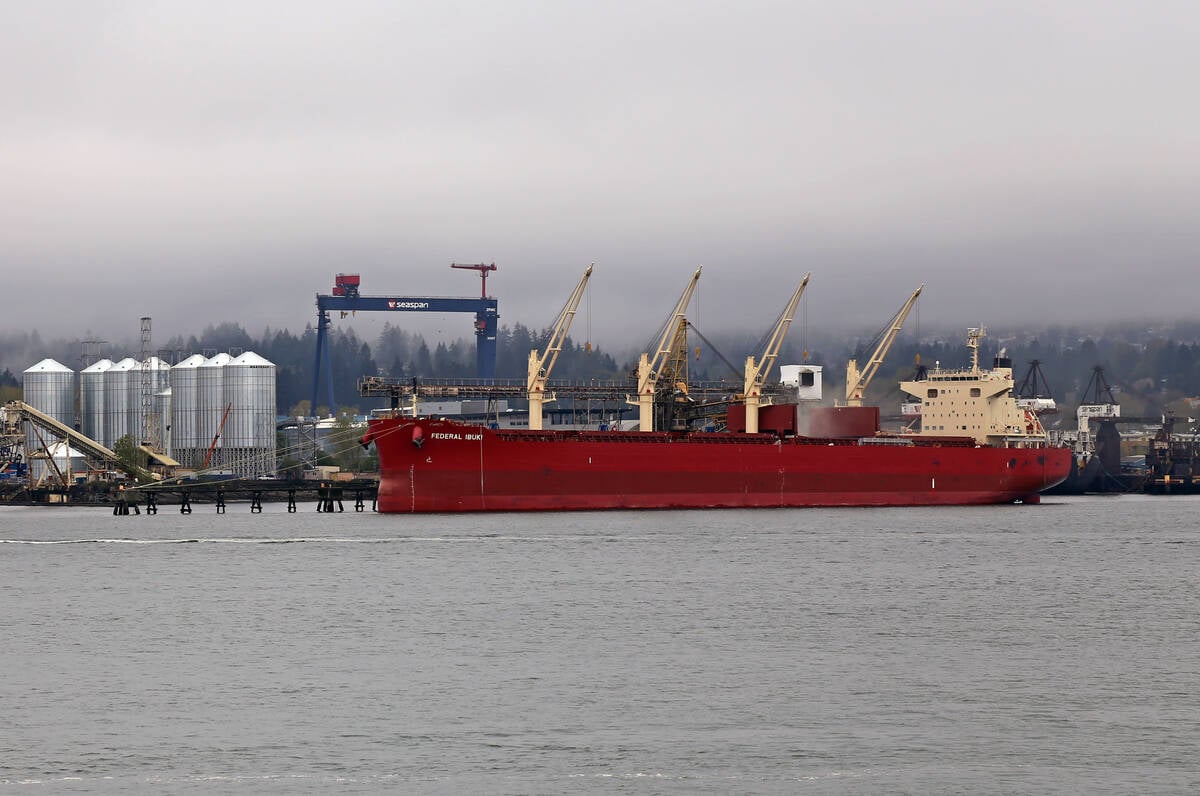Federal and provincial agriculture ministers have decided to try to stop themselves and each other from using investment incentives to lure agricultural business from other provinces.
There have been suspicions that some provinces have or might offer concessions or unfair inducements to attract new business investments, said Terry Norman, a senior Agriculture Canada trade official and co-chair of the committee of bureaucrats working on the rules.
“There is a serious concern in British Columbia and to a lesser extent in other provinces. When the Maple Leaf hog plant was announced for Brandon, for example, there were questions about what incentives Manitoba offered.”
Read Also

Vancouver port says it has improved efficiency
Grain movement has been strong at the Port of Vancouver due in part to a new centralized scheduling system.
In Victoria, a spokesperson for the British Columbia agriculture department said the province has a concern about interprovincial investment competition that goes beyond agriculture.
Barb Wright said there was anger several years ago when New Brunswick was aggressively wooing businesses from other provinces. Some called premier Frank McKenna’s efforts “job poaching.” B.C. was particularly vulnerable in agriculture and food processing, she said.
“B.C. does have a lower level of expenditure on agriculture than other provinces. We don’t want provinces stealing industries back and forth because the agrifood industry suffers. It is the companies that win.”
Agriculture ministers from Ottawa and the other provinces accepted B.C.’s point when they met in July for their annual summer conference.
Norman said there is a concern about competition between provinces trying to attract investment and attempts to lure existing businesses from another province.
“Ministers agree that incentives resulting in the relocation of an existing enterprise from one province to another provide no net benefit to the Canadian agriculture and agrifood industry,” said a statement from the ministers’ conference.
The investment code of conduct will be connected to an agreement on internal trade, negotiated several years ago.
At the meeting, ministers also instructed officials to try to renegotiate the “agreement on internal trade” as it affects agriculture. Norman said the mandate for the renegotiation is vague. However, the decision to commit time and resources to lower internal trade barriers was not universally popular. Quebec said it will not take part in the talks because it thinks most of the government’s trade resources should be concentrated on preparing for the next round of world trade talks, beginning late next year.
















